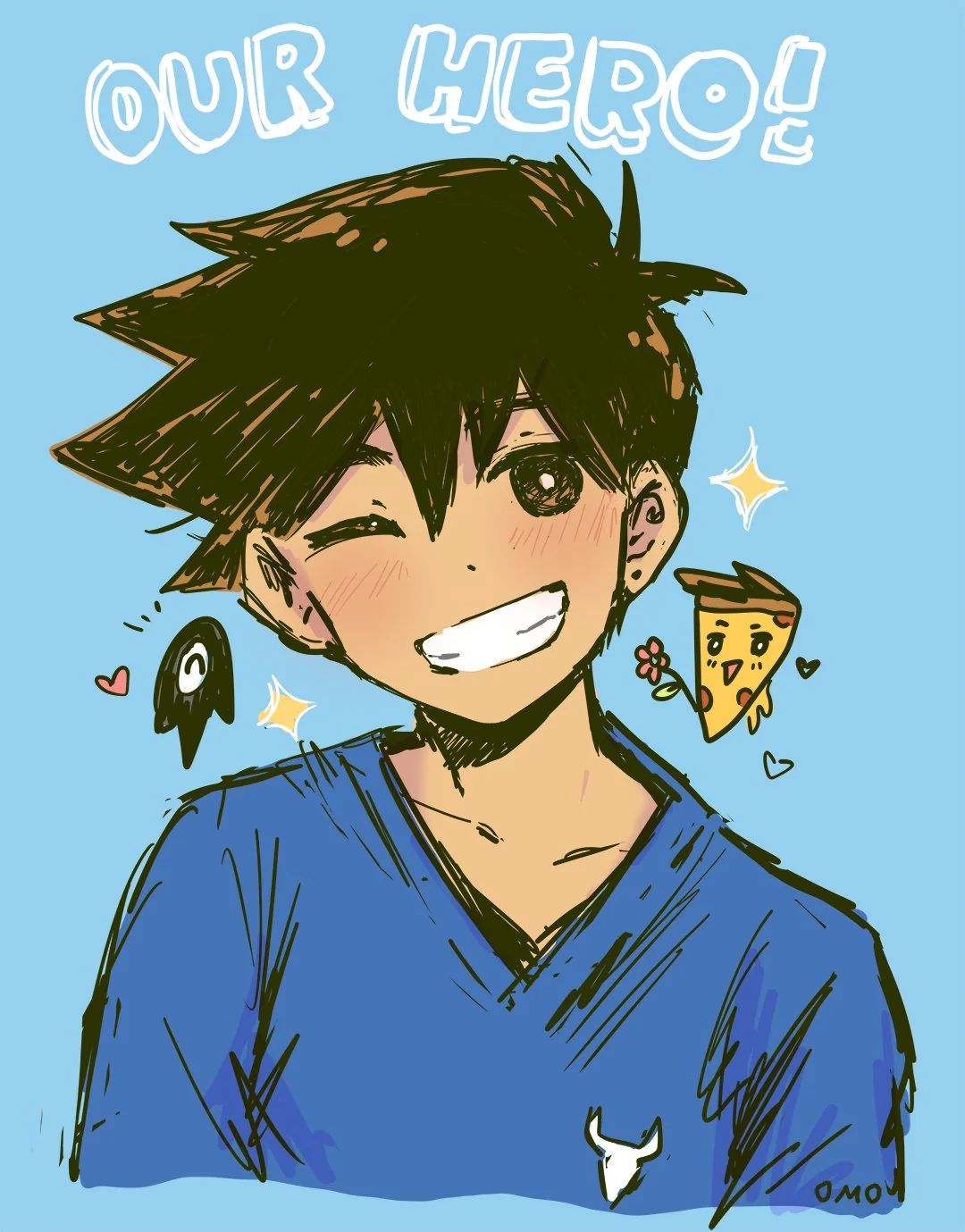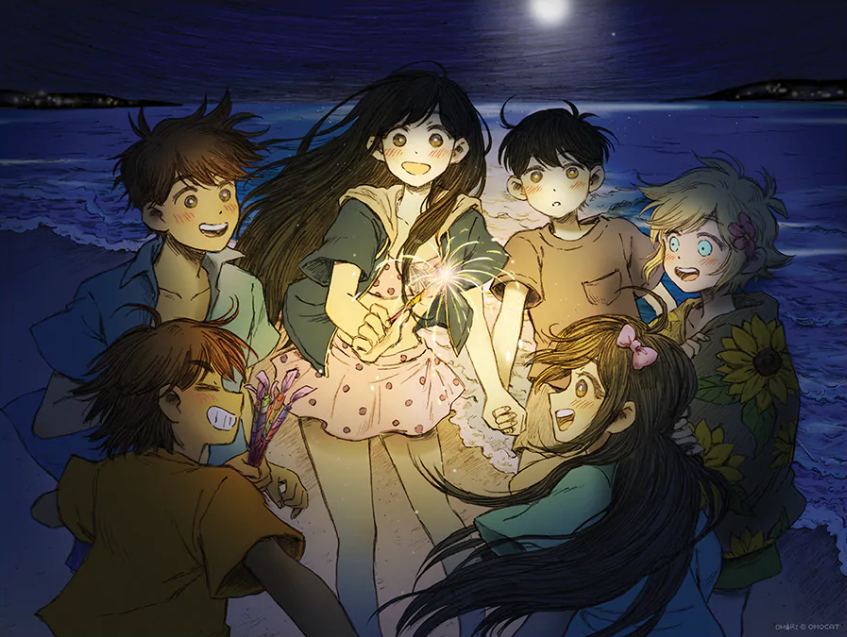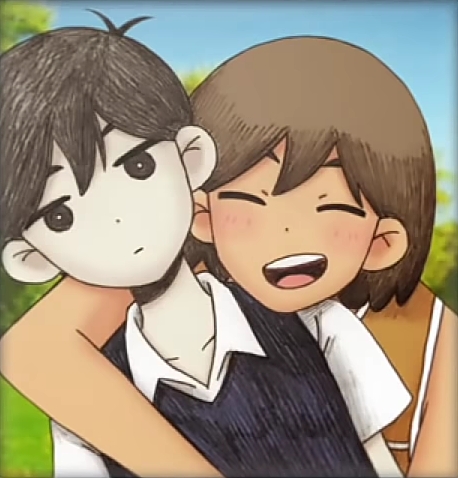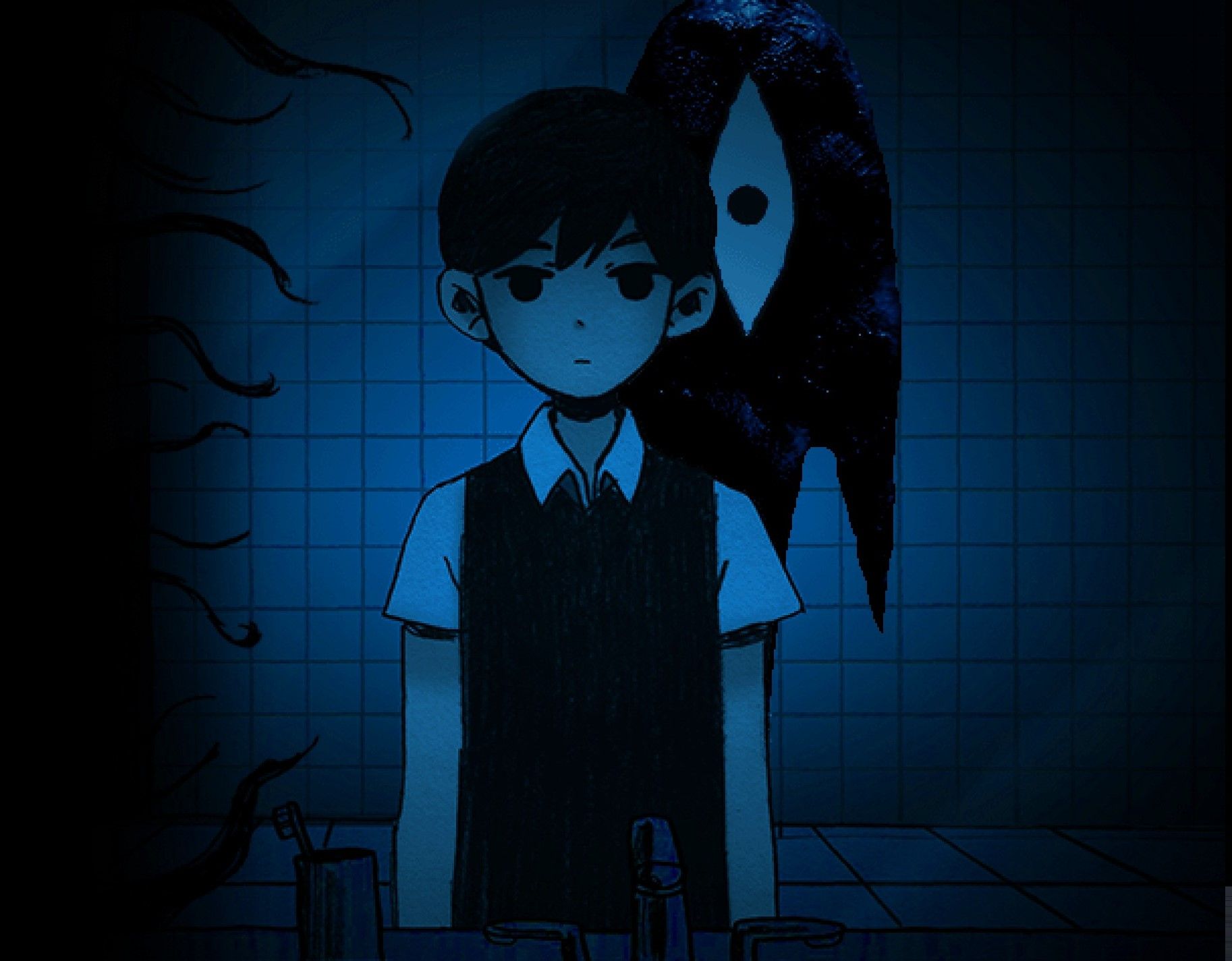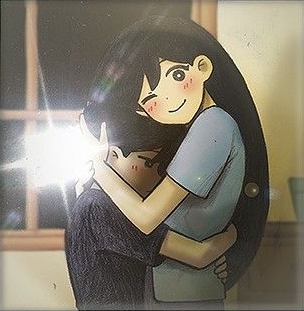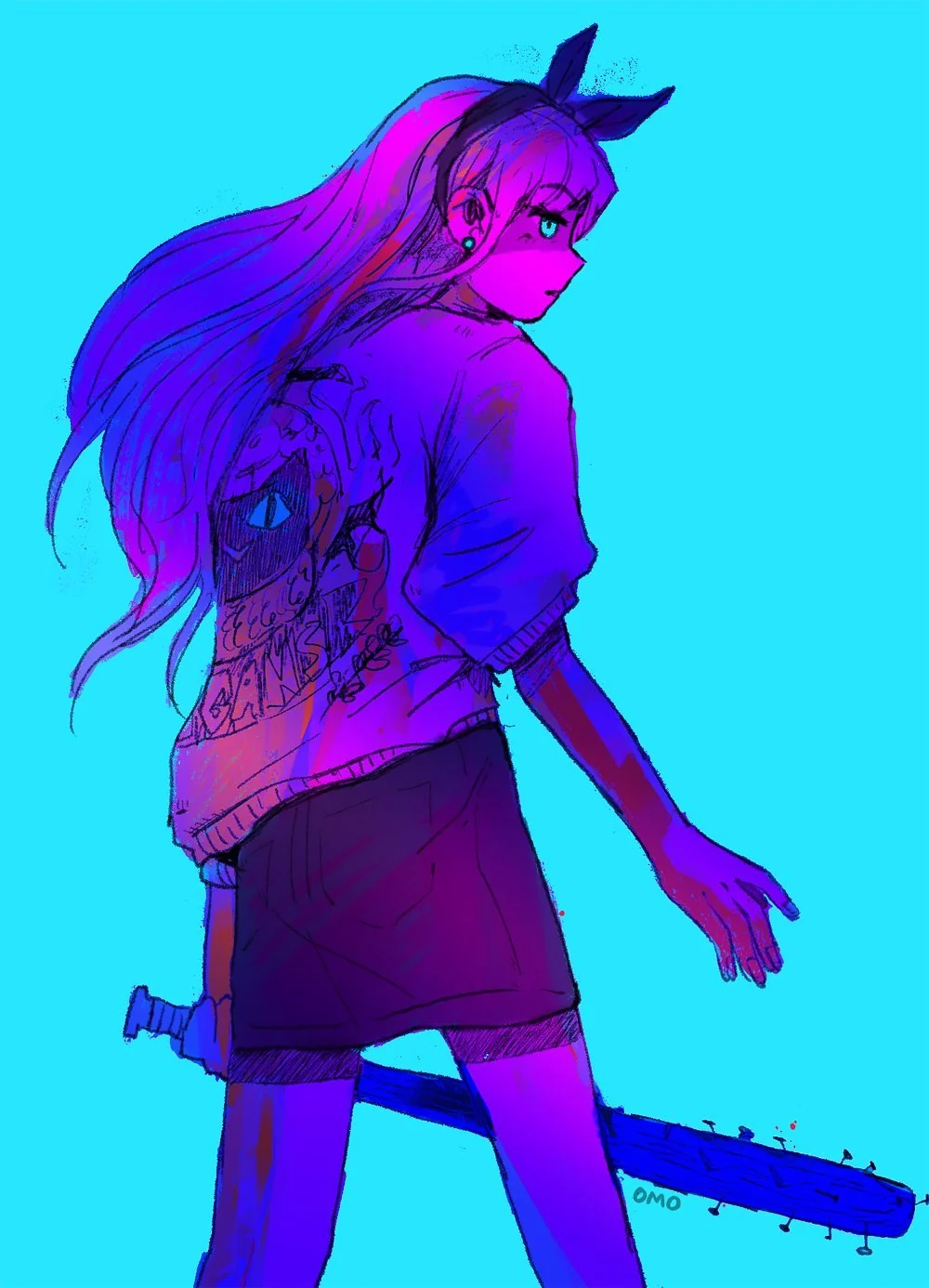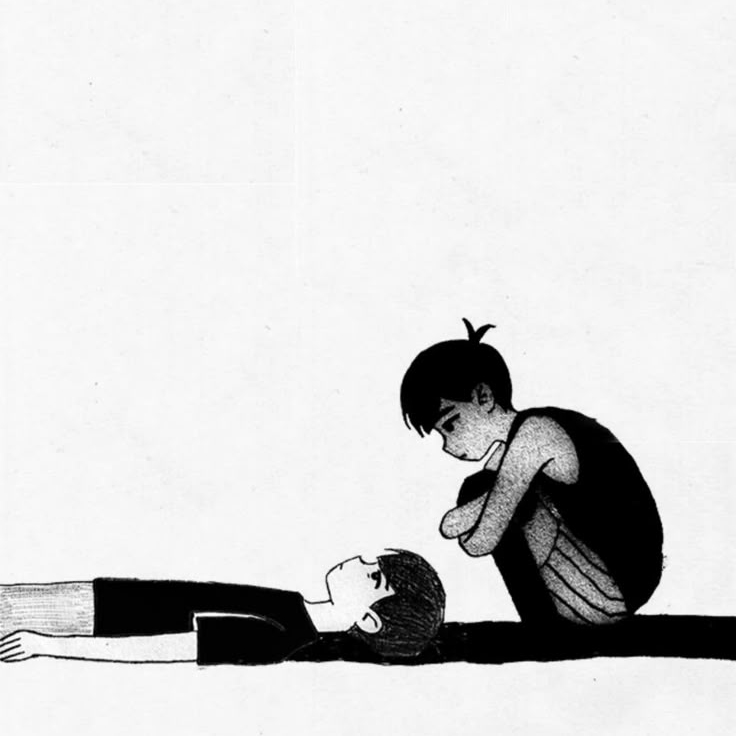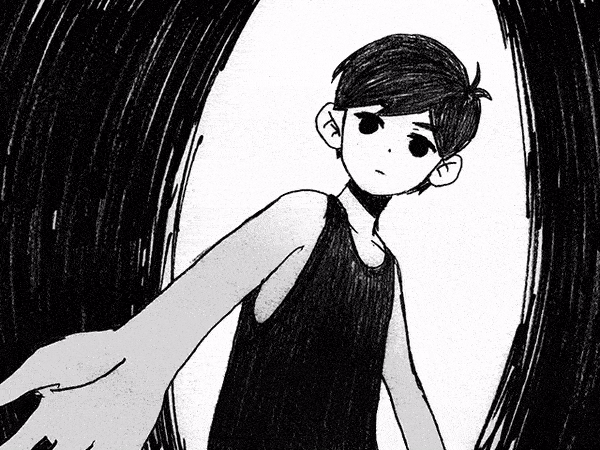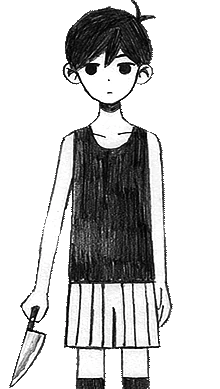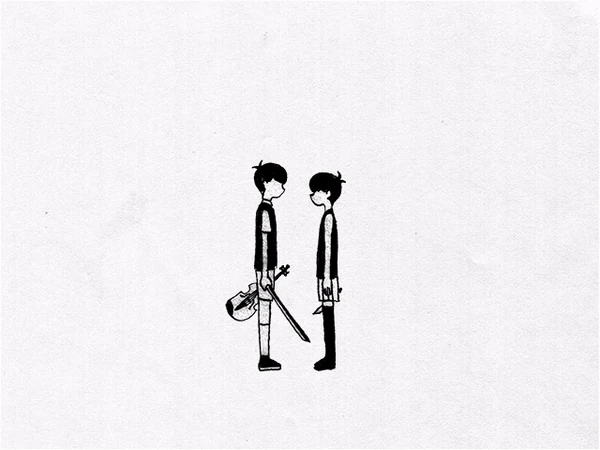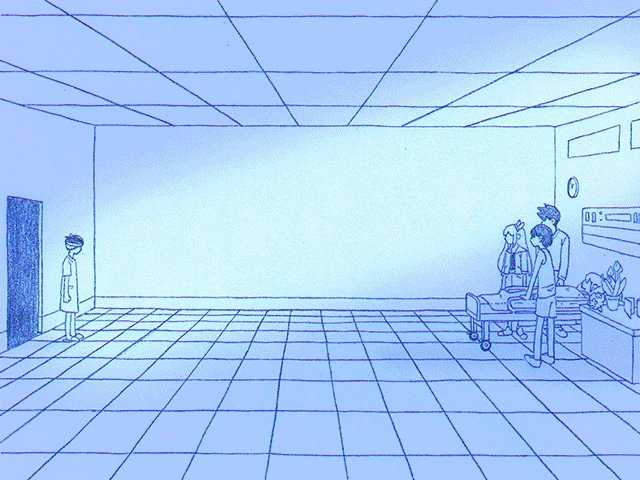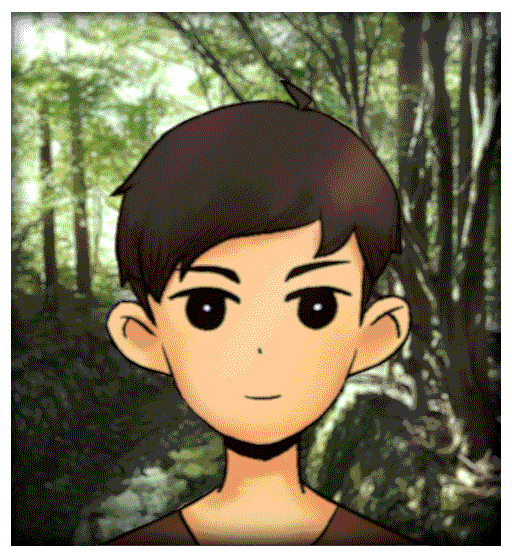well, there are a million and one things i want to say about omori.
from the art, to the world design, to conceptualising Sunny's mind into HEADSPACE, to the story, to the motif of flowers and their meanings, to the
painstaking amount of detail and secrets put into the world.
the truth is there are people that have already
dissected and analysed this game far better than i ever could. so instead of trying to do the same, im going
to write about the things that resonated with me the most.
“To be in white space is to be nothing. white space is emptiness, a home without warmth. A place to survive,
but not to live. Even still, your conscience cannot be erased. It will always find a way in. Even in white
space, it will take the form... and if one wills it, something will be formed to subdue it.”
i've been in white space before. it's safe, but stagnant. nothing can grow here.
Sunny will never get better staying there. OMORI's portrayal of Sunny's mind divided into regions is so
effective. WHITE SPACE is where he represses his memories. BLACK SPACE is where the inconvenient and
disturbing truths lie. In between them is HEADSPACE, the dream world which he constructed to distract
himself; it is where he keep his sins buried. the deeper you go, the closer you get to BLACK SPACE and the
more the truth is revealed.
i love Omori (the HEADSPACE form of Sunny)
despite being portrayed as sinister as the game progresses, Omori is not actually evil. he's not even really
the "bad" part of Sunny. Omori is very similar to a manifestation of Sunny's Jungian Shadow. throughout the
game, Omori protects Sunny when Sunny takes its form in HEADSPACE. Omori is strong.
Omori will not succumb in combat encounters and saves
Sunny when the weight of his guilt is too much and threatens to swallow him. he is a defense mechanism that
protects Sunny from the truth.
the “shadow is that hidden, repressed, for the most part inferior and guilt-laden personality whose ultimate
ramifications reach back into the realm of our animal ancestors…If it has been believed hitherto that the
human shadow was the source of evil, it can now be ascertained on closer investigation that the unconscious
man, that is his shadow does not consist only of morally reprehensible tendencies, but also displays a
number of good qualities, such as normal instincts, appropriate reactions, realistic insights, creative
impulses etc “ [CW9 paras 422 & 423].
in Jungian psychology, the Shadow self is the side of ourselves we do not show to others. it is all we deem
wrong or negative or shameful such as anger or greed. however, it also contains our potential. to deny our
Shadow is to also deny that potential.
for example, if someone believes that being assertive is wrong and goes through life being pushed around,
they become bitter, and in turn feel guilty for feeling this way. in this case, his potential for
assertiveness and his resentment both form part of his shadow. assimilating his shadow by challenging his
belief system can help reduce his own resentment.
in Sunny's case, he is filled with guilt for his actions and is afraid of what his friends will think of him. this in turn makes him feel more
guilty for hiding it, which then leads to his withdrawal from society, which then fuels his self hatred and guilt further.
in the final battle, Sunny confronts Omori.
he knows it's time to accept the truth, but Omori won't let him. he doesn't believe Sunny can handle it.
"You've caused so much suffering... yet you do nothing."
" No matter what you do, it will be hopeless."
"Your friends will never forgive you. They'll hate you as much as you hate yourself."
Omori berates Sunny throughout the battle. some of what Omori says might be true while others might not be,
but it doesn't matter, because this is what Sunny thinks of himself. no matter how much Sunny attacks Omori,
Omori will not succumb because you cannot kill a part
of yourself.
you cannot kill your shadow.
instead, Sunny assimilates his shadow. (QUITE LITERALLY)
and thus, doing so helps Sunny achieve what he needs most: self forgiveness and acceptance.
i can't quite express how much i love that they don't show Sunny's friends' reaction to his confession.
because it doesn't matter. the one torturing Sunny was himself. the game's story and the whole adventure
through HEADSPACE was helping Sunny overcome that. even if everyone doesn't forgive him, even if their
friendship will take years to mend, if ever, the first step he has to take is to accept and to forgive himself.
with the lie finally revealed, Sunny (and Basil) can both finally grieve.
for better or worse, i see a lot of myself in Sunny. be it past encounters with depression or suicidal ideation, im trying to get better at not being ashamed of it.
self forgiveness is something i struggle with a lot; i can't even imagine it on the scale of something like
Sunny. how can i be deserving of self-forgiveness if no one else forgives me? to me, that feels incredibly
selfish. "the self hatred and guilt is penance for what i've done." but perhaps that is my own Shadow talking.
from the protagonists relationship, i'd like to believe his friends will eventually forgive him; but the sin
he committed is so grave, i don't even know how I would react if someone close told that to me.
i'd like to
believe i would be compassionate.
i haven't played omori in years, but the entire experience is still seared into my memory.
i think after so long, i can definitively say that OMORI is my favourite EXPERIENCE
of all time.
i have played many games with amazing narratives and mechanics and watched movies that were masterpieces, but none has compared to how much OMORI has affected me while and after playing this game.
i didn't even go into detail about the incredible art, music, symbolism or worldbuilding.
thank you for reading my long ramble about OMORI. if you haven't played it, i cannot recommend it enough.
